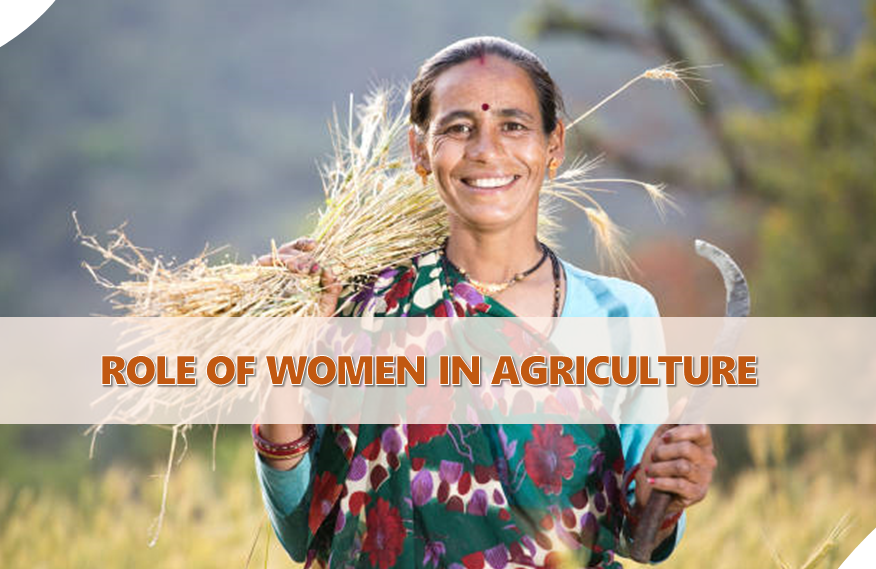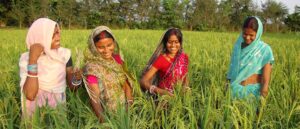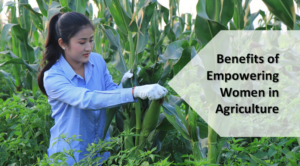Home » The Role of Women in Agriculture: Breaking Barriers

For centuries, the image of the farmer has been etched in our minds as a weathered, brawny man, tilling the soil under a blazing sun. However, this image is far from complete. Women have always played a crucial role in agriculture, planting, tending, and harvesting food for their families and communities. Yet, their contributions have often been overlooked, undervalued, and even actively suppressed.
Today, however, the tide is turning. Women are no longer content to be relegated to the sidelines of the agricultural landscape. They are reclaiming their rightful place as vital players in the food system, breaking down barriers and paving the way for a more equitable and sustainable future.
Despite their significant contributions, women in agriculture still face numerous challenges:
Revolutionizing Agriculture: The power of precision farming

Despite these challenges, women are making remarkable strides in overcoming them. Here are some of the ways they are breaking through the barriers:

Empowering women in agriculture has far-reaching benefits, not just for women themselves, but for communities, economies, and the environment as a whole:
By working together, we can create a more equitable and sustainable food system where women have the opportunity to reach their full potential and contribute to a brighter future for all. Let’s celebrate the vital role of women in agriculture and break down the barriers that hold them back. Together, we can cultivate a more just and nourishing world.
From
Dr. Ravi Prakash Mishra
Asso. Prof./ Head
School of Agriculture
Lingaya’s Vidyapeeth
College for Agriculture in Delhi NCR
As we know that, In the field of agriculture, there are no longer any boundaries based on gender. Females are increasingly pursuing studies in agriculture, with Lingaya’s Vidyapeeth emerging as the best colleges for B.Sc Agriculture and M.Sc Agriculture programs. Here, students can delve into modern farming techniques and cultivate skills essential for a successful career in agribusiness, irrespective of gender.
March 4, 2024
RECENT POSTS
CATEGORIES
TAGS
Agriculture Agriculture future AI Architecture artificial intelligence BA English BA Psychology BTech CSE BTech Engineering Business management career Career-Specific Education career guide Career Opportunities career option career scope Civil engineering commerce and management Computer Science Computer science engineering Data science degree education Engineering Engineering students English Literature english program Exam tips Fashion Design Fashion design course Higher Education Journalism journalism and mass communication law Law career Machine Learning MA Psychology Master degree mathematics MBA Mechanical Engineering Pharmacy Psychology Research and Development students
University Address: Nachauli, Jasana Road, Faridabad, Haryana
Toll Free: 1800-120-4613
Mobile : 8447744303 | 8447744304 | 8447744306 | 8447744309
Address: C-72, Second Floor, Shivalik, Near Malviya Nagar,
Above HDFC Bank, New Delhi 110017
Ph.No. - 011-46570515 / 45138169 / 41755703 / +91-7303152412
Jagmani Kutir, Ground Floor, Road No-1, Rajeev Nagar,
Near Darbar Marriage Hall, Patna-800024, Bihar
Contact No: 9818352069/8130120095
Mail: [email protected]
Copyrights © 1998 - 2025 Lingaya's Vidyapeeth (Deemed To Be University). All rights reserved.
It is important to note that the following email IDs and domains are fraudulent and do not belong to our university.
LV only conducts physical/online verification of any document related to examination on the following email id: